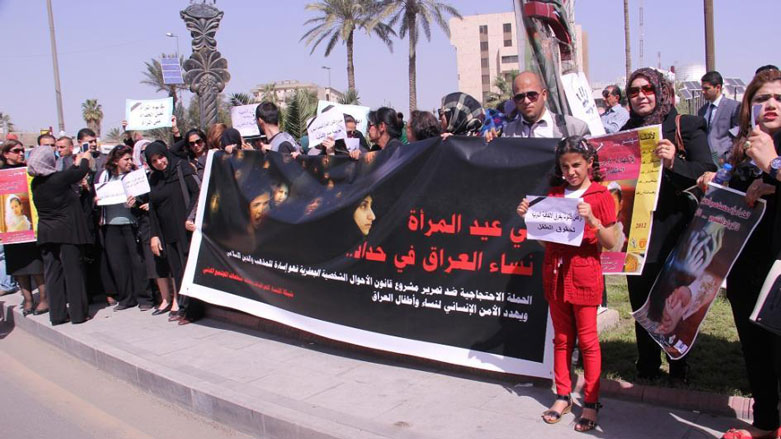HRW: 'Honor' killing in Iraq shows need for new domestic violence law

ERBIL (Kurdistan 24) – A human rights organization said on Tuesday that a bride murdered in what appears to be an "honor killing" last week demonstrates the need for Iraq's next parliament to pass a draft domestic violence law that was first introduced in 2015.
Media reported last week that, after a bridegroom in the city of Najaf returned his new wife to her parents the day after their wedding, complaining that she was not a virgin, a family member beat her to death "with a sharp object." Police reportedly arrested a male relative.
"While the man will likely now face trial for murder, it is possible that he may benefit from a reduced sentence under a provision in Iraq’s penal code allowing for shorter sentences for violent acts – including murder – for so-called 'honorable motives,'" read a new report from Human Rights Watch (HRW).
Though the rights group says Iraq's domestic violence bill is flawed, its passage would be an improvement on current legislation.
Its provisions "would oblige the government to protect domestic violence survivors, including with restraining orders and penalties for breaching them, and the creation of a cross-ministerial committee to combat domestic violence. It would also require the government to provide shelters so women at risk of violence have a safe place to go if they are forced to flee their home."
In Iraq and the Kurdistan Region, there is a history of men accused of killing women or girls perceived to have brought shame to a family or tribe being given token sentences, or in other cases, escaping justice entirely. Even though such acts are illegal, their prosecution, in practice, is sometimes dealt with as a "family" matter.
HRW points out that this tendency exists even in the new draft law they are advocating since it includes a preference for families to address violence through “reconciliation committees” rather than prosecution. The group suggests instead that Iraqi authorities should "set clear penalties for the crime of domestic violence, and close the loophole that lets abusers receive reduced punishments for so-called 'honor' crimes, both not addressed in the draft law."
"If improved," said HRW, "this draft law is the best chance Iraq’s new parliament has to tackle the scourge of violence in the home, fulfill its international legal obligations on domestic violence, and save the lives of countless Iraqi women and children."
Women's rights groups roundly condemned another bill that some members of the Iraqi parliament began pushing for in 2014, which would restrict women's rights in matters of inheritance, parental and other rights after divorce, make it easier for men to take multiple wives, and allow girls to be married from age 9.
According to HRW, the Iraqi government told a UN treaty body in 2016 that the bill “has been withdrawn and the Iraqi Government has no plans to resubmit it, let alone adopt it." Discussion of its passage, however, appeared on the parliament's published agenda on March 27, 2018.
